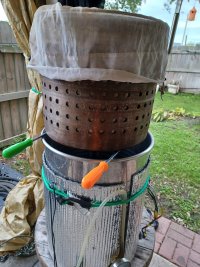I did my first batch in a Grainfather G30 today, and the sparge definitely added some time. I'm used to Full Volume Mash in a Digiboil with a Wilser Bag. I lift the bag, let it drain while it's getting to a boil, and I just come back every now and then to see the temperature. It's very hands off, aside from the 10 seconds that I tend to squeeze the bag when it's closer to a boil.
The Grainfather took over an hour to sparge. Part of it may have been my grind - I've always used the tightest setting on a Cereal Killer, which works well with a Wilser Bag. Part of it might have been the amount of water (Grainfather app recommended 4 gallon mash and 4 gallon sparge, and the mash was like thick oatmeal). Either way, the kettle got near boiling - I think it may get to 206 or 208 degrees, then holds temperature until you tell it to boil - and it took a lot of waiting for the sparge to complete. And it was also very hands on, as I was going back too add water pretty often.
On the other hand, I do like how the grain basket can be placed on top of the kettle to drain. That's a little cleaner than hoisting my Wilser Bag with a pulled, and having it spill over the side of the kettle if I'm not careful.


![Craft A Brew - Safale BE-256 Yeast - Fermentis - Belgian Ale Dry Yeast - For Belgian & Strong Ales - Ingredients for Home Brewing - Beer Making Supplies - [3 Pack]](https://m.media-amazon.com/images/I/51bcKEwQmWL._SL500_.jpg)















































